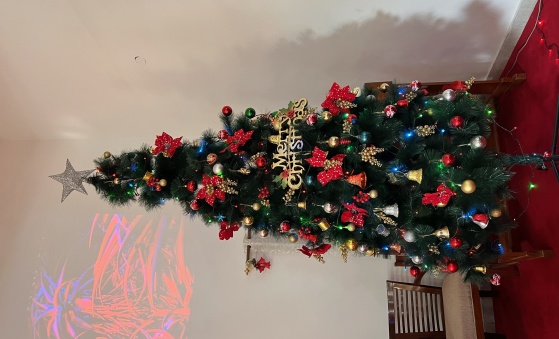
Despite the UK, the US, and Canada being multicultural societies, many on both sides of the Atlantic seem conflicted about diversity. On one hand, it is applauded as a sign of a free, equal, and modern society; on the other hand, it might be feared as something that fundamentally denigrates the character of the cultural majority. For example, the murder of George Floyd revealed the painful reality of racism for many.
During 2020 and 2021, anti-Asian discrimination and violence rose to record levels in the UK and North America, and debates around possible responses to refugees and asylum seekers continue in many Western nations.
As Christians, we may wonder how these conversations around diversity connect with Scripture and our faith. Yet, as we shall see, to explore the biblical story is to discover a story of belonging amid diversity made possible by God.
From the beginning of the biblical narrative, we see that Scripture's treatment of diversity and difference creatively reimagines diverse peoples joining into one people, as a new humanity, under one God.
Biblical Diversity in the Old Testament
The Bible reminds us that God created one race of people made in God's image (Genesis 1:27). And God created the universe with a tremendous amount of diversity, and Scripture presents this as a source of God's glory (e.g. Psalm 104:24; Romans 11:36). So, because all people are from God, diversity and difference in our world are not deviations from his intentions for the world.
While Gen. 11:1-9 seems to initially portray the diverse fragmentation of humanity as a tragedy, we gradually see how this diversity becomes a blessing by preventing a monolithic culture from dominating the earth. Moreover, Scripture reveals how one of these diverse peoples from Abraham's family will receive God's blessing and presence, with the intention that all might receive it (Gen. 12:1-3) through a covenant relationship with Him.
Thus, we should not be surprised to read later that God delivers Abraham's descendants, Israel, from Egypt as a "mixed multitude" (Ex. 12:38, ESV) that likely included non-Hebrews who were incorporated into the community. It is this redeemed and mixed community that receives and obeys God's law as His one, covenant people who are commanded by God to love strangers as themselves and to welcome to them as kin (cf. Lev. 19:33-34; cf. Lev. 19:18), just as they have been welcomed.
While Israel kept boundaries regarding its faith and faithfulness towards God, it was the grace and faithfulness of God that allowed all people to discover belonging amid their differences. As the late Rabbi Jonathan Sacks wrote, Israel's story as God's mixed people reveals "the dignity of difference" in the biblical narrative of the Old Testament.
Biblical Diversity in the New Testament
In turning to the New Testament, we continue to see a communion that involves the dignity and goodness of difference.
In looking to the Kingdom of God as revealed in and by Jesus, we see that it is relational—it involves a joining and communion with God and others, through Christ and by the Spirit (Rom. 8:14-17). Therefore, in Christ, the Father is also ours (Matt. 6:9-13; cf. Jn. 20:17).
However, we also see that life under God's reign involves a diverse community in which God in Christ welcomes the last, the lost, and the least within and beyond Israel - as in the parable of the Good Samaritan (Lk. 10:25-37).
We may see this clearly in Christ's cross, in which Christ becomes a new centre (cf. Gal. 2:20) that simultaneously "de-centres" any dominant race, culture, or ethnicity within the family of God and opens the possibility for a belonging defined by being "in Christ".
In this, we see the church as a new family marked by Christ and the Holy Spirit (Acts 2). This does not destroy our unique identities but expands them into a new life with God. As Gal. 3:26-29 shows, God's family in Christ—joined by the Spirit—is made of united, discrete, differentiated members, held by God's love and welcome.
It should be little wonder that this vision for a new family in Christ is revealed by John's vision of a new humanity with Christ at the centre (Rev. 7:9) - and not one racial, ethnic, or cultural group.
As we move deeper into the story of Christ's life, death, and resurrection in our calendars, may we bear witness to God's welcoming vision from Genesis to Revelation in our prayer, witness, work, and waiting until "the kingdom of the world has become the kingdom of our Lord and of his Christ" (Rev. 11:15).
Abraham Wu is a pastor in Vancouver, Canada, with an MDiv from Regent College.
Republished from Christian Today UK.




